The switch has been pretty dramatic. From 2008 to 2017, you couldn’t pull Irish buyers away from their diesels. Driven by a low taxation rate, both in VRT and motor tax terms, for cars with lower Co2 emissions (a natural diesel advantage) and the promise of exceptional frugality, and the motoring trend meant we flocked to the black pump. Like lemmings?
Just possibly…
The rot set in fairly early, with some buyers realising, to their cost, that with low mileage came a double-whammy — you wouldn’t make enough back in fuel savings to claw back the extra purchase price of a new diesel car, and worse, if you did only short hops, you were storing up mechanical maladies in the shape of your diesel particulate filter, which needs long drives and the heat they generate to self-clean.
The emissions scandal
 The biggest factor in the switch away from diesel has been the scandal over emissions. Triggered by revelations over Volkswagen’s cheating of its emissions tests, governments across Europe and the world have suddenly become diesel-phobic, and that is driving buyers back to petrol, and into fuel-sipping hybrids. Even though the Irish Government made none of the much-expected moves against diesel power in last October’s budget (scared, so it was said, by a rural voter backlash) many Irish buyers are already voting with their wallets, and early 2018 sales figures show a fall for diesel and gains for petrol power and hybrid.
The biggest factor in the switch away from diesel has been the scandal over emissions. Triggered by revelations over Volkswagen’s cheating of its emissions tests, governments across Europe and the world have suddenly become diesel-phobic, and that is driving buyers back to petrol, and into fuel-sipping hybrids. Even though the Irish Government made none of the much-expected moves against diesel power in last October’s budget (scared, so it was said, by a rural voter backlash) many Irish buyers are already voting with their wallets, and early 2018 sales figures show a fall for diesel and gains for petrol power and hybrid.
2018 sales to date
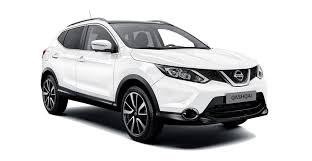 “Our 181 pre-sales figures show a real shift towards petrol cars where there is a choice on offer. The economic factors governing the cost of change and residual values sharply influencing consumer behaviour across the urban and rural divide,” said James McCarthy, CEO of Nissan Ireland. “The rate of change is far more accelerated than predicted and the trend from our 181 pre-sales figures provides very real evidence that the split between petrol and diesel car sales is well on track to being close to equal by the end of next year. Sales of the Nissan Qashqai provide a very accurate barometer of what is happening in the market and our 181 pre-sales figures have swung in favour of petrol for the first time, heralding a return towards the natural market position of 70:30 that existed in 2007.”
“Our 181 pre-sales figures show a real shift towards petrol cars where there is a choice on offer. The economic factors governing the cost of change and residual values sharply influencing consumer behaviour across the urban and rural divide,” said James McCarthy, CEO of Nissan Ireland. “The rate of change is far more accelerated than predicted and the trend from our 181 pre-sales figures provides very real evidence that the split between petrol and diesel car sales is well on track to being close to equal by the end of next year. Sales of the Nissan Qashqai provide a very accurate barometer of what is happening in the market and our 181 pre-sales figures have swung in favour of petrol for the first time, heralding a return towards the natural market position of 70:30 that existed in 2007.”
The depths for diesel
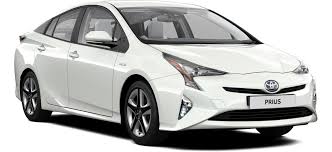 Will diesel really fall that low? Down to 30 per cent of the market from a high, in 2015, of 76 per cent? Yes, is the answer, albeit it won’t all happen in 2018, or probably not anyway. Toyota, for instance, expects diesel’s market share to fall to around 45 per cent this year. Still a big drop, and a return to petrol dominance not seen for a decade, but not quite a full-on plummet.
Will diesel really fall that low? Down to 30 per cent of the market from a high, in 2015, of 76 per cent? Yes, is the answer, albeit it won’t all happen in 2018, or probably not anyway. Toyota, for instance, expects diesel’s market share to fall to around 45 per cent this year. Still a big drop, and a return to petrol dominance not seen for a decade, but not quite a full-on plummet.
Toyota’ Ireland’s MD Steve Tormey said; “The demise of diesel is very plain to see, but our feeling is that the Irish market will move out of diesel far quicker than the industry would like, or believe. In our planning for 2018, we’d predicted our Hybrid mix of total passenger car sales to grow from 30 per cent to 45 per cent. However the demand coming into 2018 is more like 55 per cent Hybrid. Our Diesel demand coming into 2018 is down from a 38 per cent mix to 18 per cent, which we had predicted, as Irish consumers look to protect their future resale value and the environment from a health point view.”
Less than half new car sales running diesel
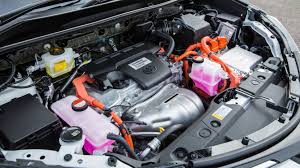 Mr. Tormey predicts that diesel will account for only 45 per cent of the overall market, down from 65 per cent in 2017, while preference for petrol hybrid power trains will double from 3.4 per cent in 2017 to seven per cent in 2018. Looking further ahead, Mr. Tormey believes that by 2020 diesel is likely to be down close to 20 per cent of the overall market, with hybrid picking many diesel defectors to round out at roughly 25 per cent of the market.
Mr. Tormey predicts that diesel will account for only 45 per cent of the overall market, down from 65 per cent in 2017, while preference for petrol hybrid power trains will double from 3.4 per cent in 2017 to seven per cent in 2018. Looking further ahead, Mr. Tormey believes that by 2020 diesel is likely to be down close to 20 per cent of the overall market, with hybrid picking many diesel defectors to round out at roughly 25 per cent of the market.
Part of the appeal of hybrids is increasingly their improved residual values. Some figures are putting resale values for hybrid models as much as six per cent higher than those of a diesel equivalent, and that can only increase as the year goes on.
UK imports of diesel cars
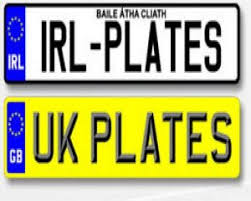 Why? Because from a record 93,000 second hand imports from the UK in 2017, 2018 is likely to be another busy year for Revenue’s VRT office. Diesel sales, and residual values, are falling off a cliff in the UK, and so DERV-fuelled cars which are no longer desirable across the Irish Sea will almost inevitably be sold off here, and at drastically discounted rates. Indeed, there is a distinct danger that Ireland will become this year a dumping ground for UK diesel cars, driving down residual values for existing diesel owners here.
Why? Because from a record 93,000 second hand imports from the UK in 2017, 2018 is likely to be another busy year for Revenue’s VRT office. Diesel sales, and residual values, are falling off a cliff in the UK, and so DERV-fuelled cars which are no longer desirable across the Irish Sea will almost inevitably be sold off here, and at drastically discounted rates. Indeed, there is a distinct danger that Ireland will become this year a dumping ground for UK diesel cars, driving down residual values for existing diesel owners here.
Buyer beware
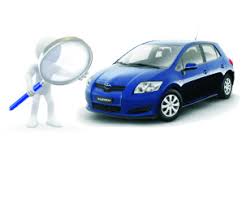 It’s not just a value issue though. The unfortunate fact is that, as dealers and sellers in the UK seek to maximise profit margins on cars which are seeing their values fall every day, some unscrupulous practices will inevitably creep in. Doubtless the recent change in the UK’s write-off categories will be exploited by those seeking to cash in on buyers’ lack of awareness, and it’s unquestionable that a significant proportion of the cars which will be imported here this year will have patchy histories, undeclared damage or repairs, and unpaid finance outstanding. If you are planning to shop in the UK for your next car, it will be more vital than ever to do a thorough history and background check with Motorcheck, and to only buy from reputable businesses and dealers.
It’s not just a value issue though. The unfortunate fact is that, as dealers and sellers in the UK seek to maximise profit margins on cars which are seeing their values fall every day, some unscrupulous practices will inevitably creep in. Doubtless the recent change in the UK’s write-off categories will be exploited by those seeking to cash in on buyers’ lack of awareness, and it’s unquestionable that a significant proportion of the cars which will be imported here this year will have patchy histories, undeclared damage or repairs, and unpaid finance outstanding. If you are planning to shop in the UK for your next car, it will be more vital than ever to do a thorough history and background check with Motorcheck, and to only buy from reputable businesses and dealers.